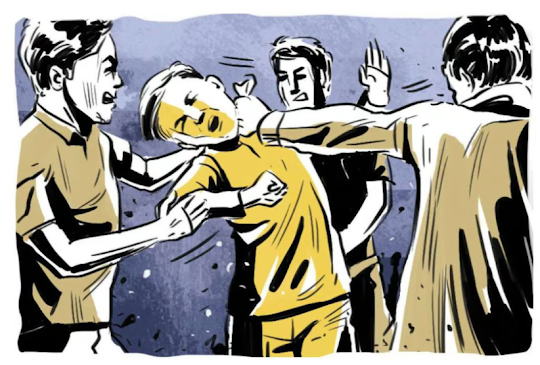Exposing the Truth: What’s Really Behind Attacks on Minorities in Bangladesh?
In recent years, Bangladesh has witnessed a disturbing pattern of attacks on its religious minorities—Hindus, Buddhists, and Christians. These incidents, often downplayed or misrepresented, have now been officially labeled as "politically motivated." But what does this label truly signify? Are these attacks genuinely driven by politics, or is this a convenient narrative to obscure deeper systemic issues?
A Startling Revelation
On January 11, 2025, the Daily Prothom Alo published a report revealing that 98.4% of the attacks on minorities between August 4 and August 20 were politically motivated, according to a police investigation. The data, sourced from the Chief Advisor’s press wing, implies that these attacks were not random acts of violence but strategically orchestrated for political gain.
However, the term "political motivation" remains ambiguous. The Bangladesh Penal Code does not recognize any crime as a "political attack" or "political vandalism." This raises an important question—why has the government chosen to categorize these assaults in this manner, and what purpose does this serve?
A Shift in Narrative
The phrase "political motivation" was first used in an official context by Dr. Muhammad Yunus, the current Chief Advisor of Bangladesh. Dr. Yunus, a globally recognized figure and Nobel Peace Prize laureate, is best known for his work in microfinance and women's empowerment. His NGO, Grameen Bank, has received widespread international acclaim for uplifting marginalized communities.
Given his background, Dr. Yunus's assertion that these attacks are politically driven holds weight in the global arena. But does this statement truly address the plight of minorities in Bangladesh, or does it redirect the conversation away from systemic discrimination?
Political Disempowerment of Minorities in Bangladesh
Historically, Hindus in Bangladesh have lacked real political power. While they make up over 20 million of the country’s population, their voting rights have often been compromised. During elections, many Hindus face threats that either prevent them from voting or pressure them into supporting a particular party. Over the last three national elections, both majority and minority communities have struggled to exercise their voting rights freely.
Since 1975, Hindu representation in government has steadily declined. Before the political upheaval of August 15, 1975, Hindu leaders like Phani Majumder and Manoranjan Dhar held significant ministerial positions. However, post-1975, governments adopted a strategy of tokenism, appointing politically insignificant individuals to leadership roles instead of strong, influential figures. This trend has continued, even under the Awami League, which is often credited with being sympathetic to minorities.
The Reality of Representation
Despite claims of inclusivity, Hindus in Bangladesh remain largely absent from key political positions. Unlike in India, where a Muslim, A.P.J. Abdul Kalam, became President, and Salman Khurshid served as Minister of External Affairs, such representation is unimaginable in Bangladesh.
A stark contrast can be seen in West Bengal, where Firhad Hakim, a Muslim leader, serves as Kolkata’s mayor and a minister in the state government. In Bangladesh, no Hindu has ever held the position of mayor in a divisional city like Dhaka, Chittagong, or Rajshahi. This disparity underscores the severe political marginalization of minorities in Bangladesh.
Moving Beyond Tokenism
To address these issues, the government must move beyond the vague label of "political attacks" and take meaningful action to protect minority communities. Law enforcement must prioritize justice over political narratives, ensuring that those responsible for these attacks are held accountable. The police chief, an expert in international policing standards, has the opportunity to implement genuine reforms rather than perpetuating political rhetoric.
Moreover, the Army Chief, who assured the nation of security following the fall of Sheikh Hasina’s government on August 5, must take responsibility for protecting all citizens. His promise to ensure the safety of minorities must be upheld, not just in words but in concrete actions that reaffirm their rights as equal citizens of Bangladesh.
A Call for Change
The younger generation of Bangladesh’s minorities refuses to accept the status quo. They are determined to break the cycle of discrimination and token representation. Achieving true political empowerment requires structural change—fair elections, equal opportunities in governance, and an end to systemic marginalization.
Bangladesh stands at a crossroads. It can continue down the path of symbolic representation and vague political narratives, or it can take real steps toward justice, inclusivity, and equality. The choice will define the nation’s commitment to human rights and democracy in the years to come.













0 Comments